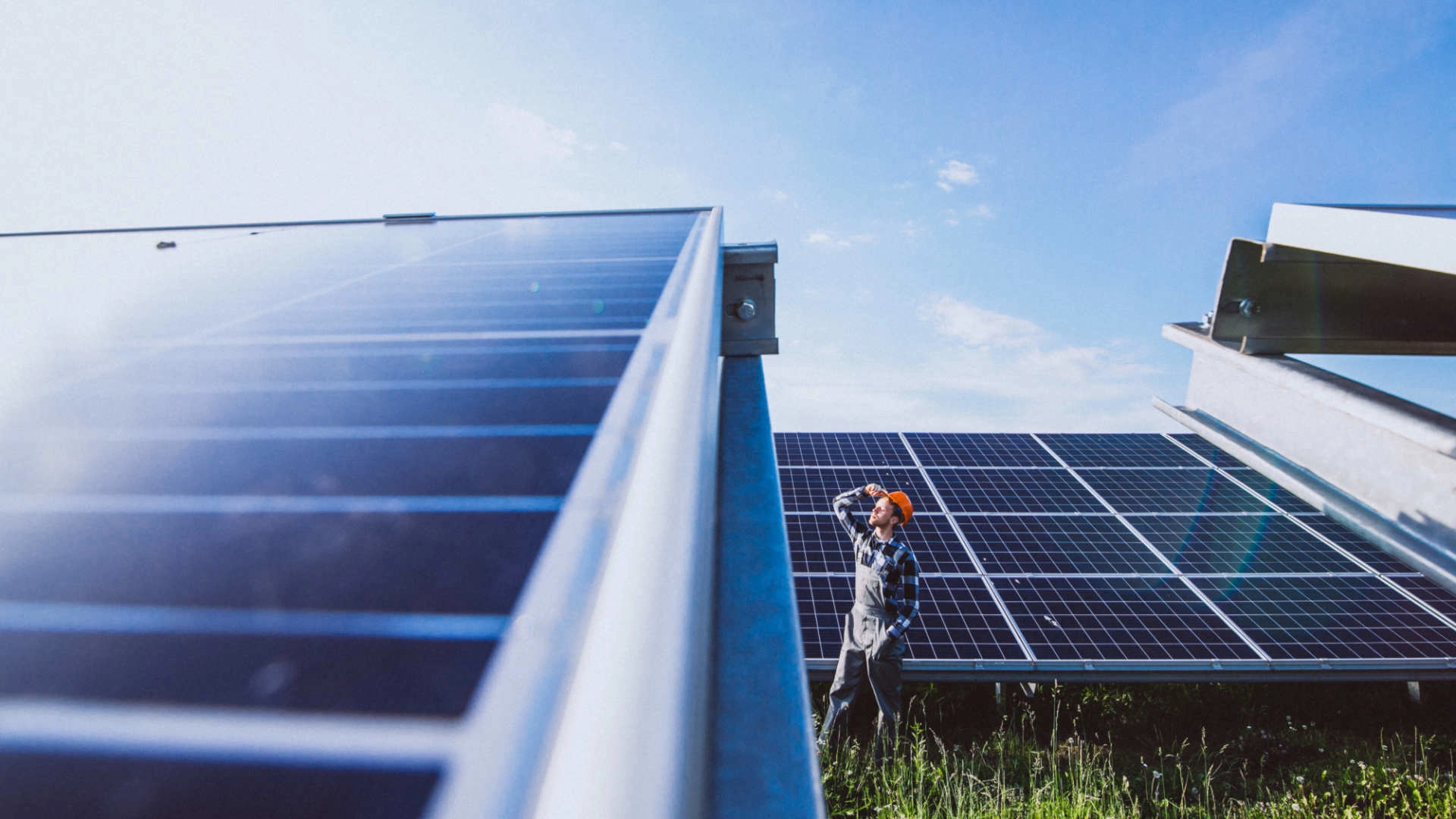
Why are solar panels good for the environment?
There is no doubt about it: solar energy is increasingly becoming one of the most crucial renewable energy sources worldwide. Among other benefits, the low ecological footprint stands out as one of the most convincing aspects of solar energy. But why are solar panels good for the environment? Our article addresses this question!
The environmental impact of solar energy
In 2022, globally, more than 1300 TWh of energy was produced with solar panels and power plants. Solar energy ranks as the third-largest renewable energy source after hydropower and wind energy.
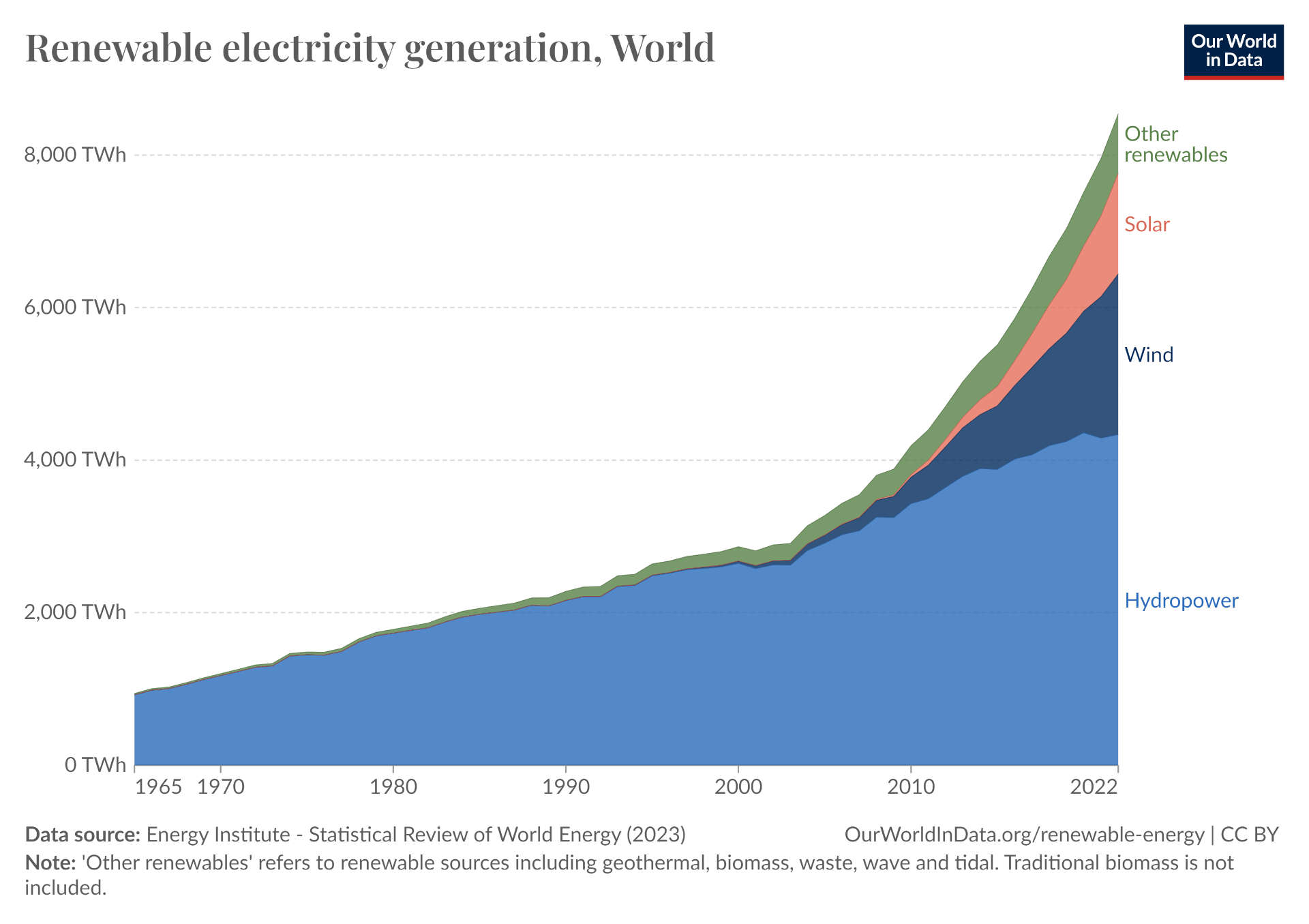
Source: ourworldindata.org
Experts anticipate further growth in the adaptation of solar panels. But what are the environmental impacts of solar energy? We have gathered some of the most important research papers on the subject.
Greenhouse gas emissions
As depicted in the graph below, global greenhouse gas emissions are steadily rising and reaching unprecedented levels. According to over 99% of climate scientists, anthropogenic climate change is occurring and primarily driven by these emissions.
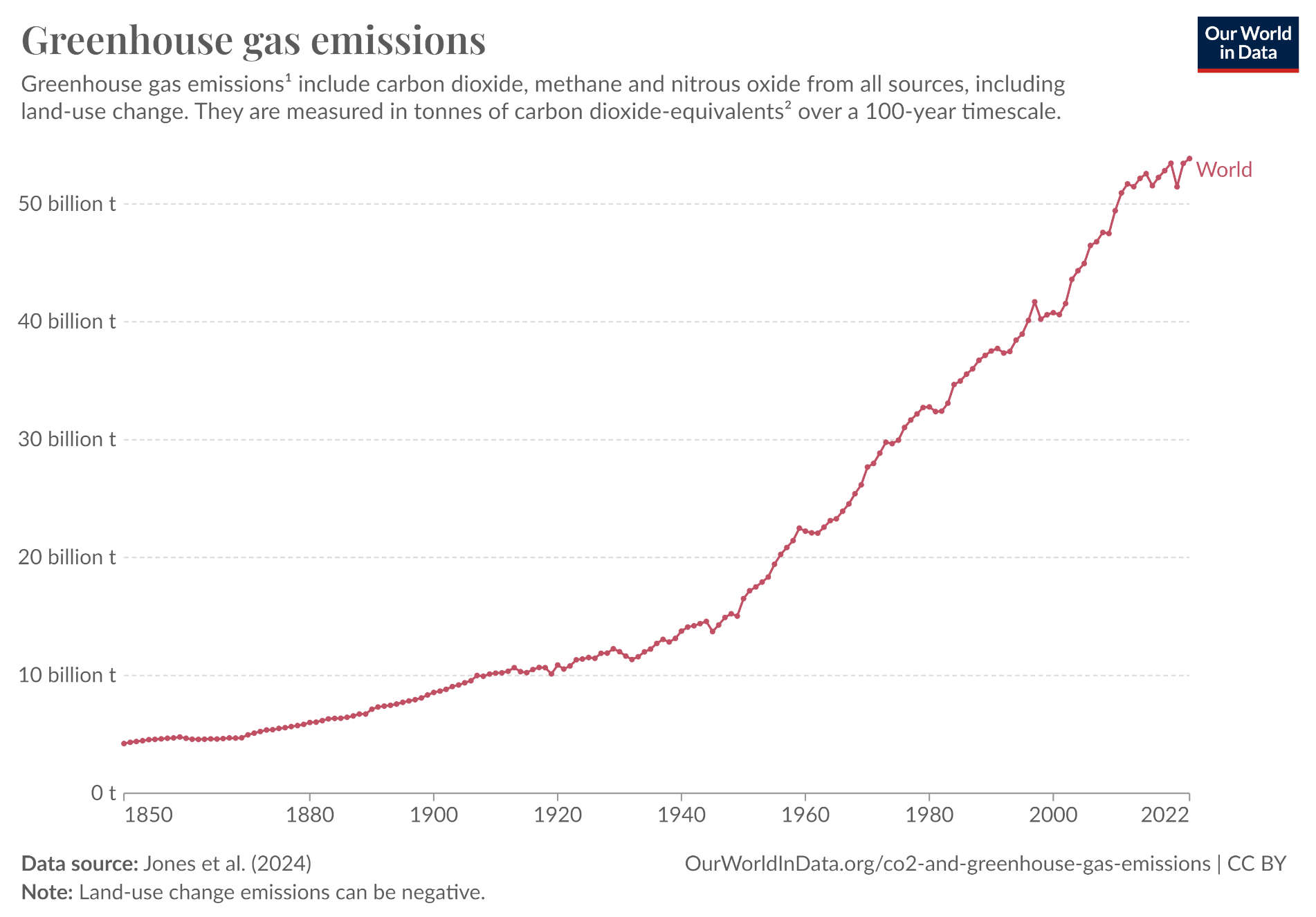
Source: ourworldindata.org
Based on the latest report from the International Energy Agency (IEA), global energy-related CO2 emissions surged to a new high of over 37.4 Gt in 2023. The report emphasizes that emissions would have been significantly higher without the contribution of clean energy sources.
"Without the growing deployment of five key clean energy technologies since 2019 - solar PV, wind, nuclear, heat pumps, and electric cars - the emissions growth would have been three times larger."
Solar panels and power plants do not emit any greenhouse gases when they operate, which is highly beneficial to the environment. However, during the production of solar panels, greenhouse gases are emitted. Many scientific organizations have conducted what is called "energy-payback time" analysis. They analyze the amount of time a solar panel must produce power to recover the energy it takes to produce. Based on most analyses, an average solar panel needs 1-4 years before it becomes carbon neutral. Given that the operating lifetime of a solar panel is approximately 30 years, it can be confidently stated that for 86.6% to 96.6% of its lifespan, a solar panel operates carbon neutrally.
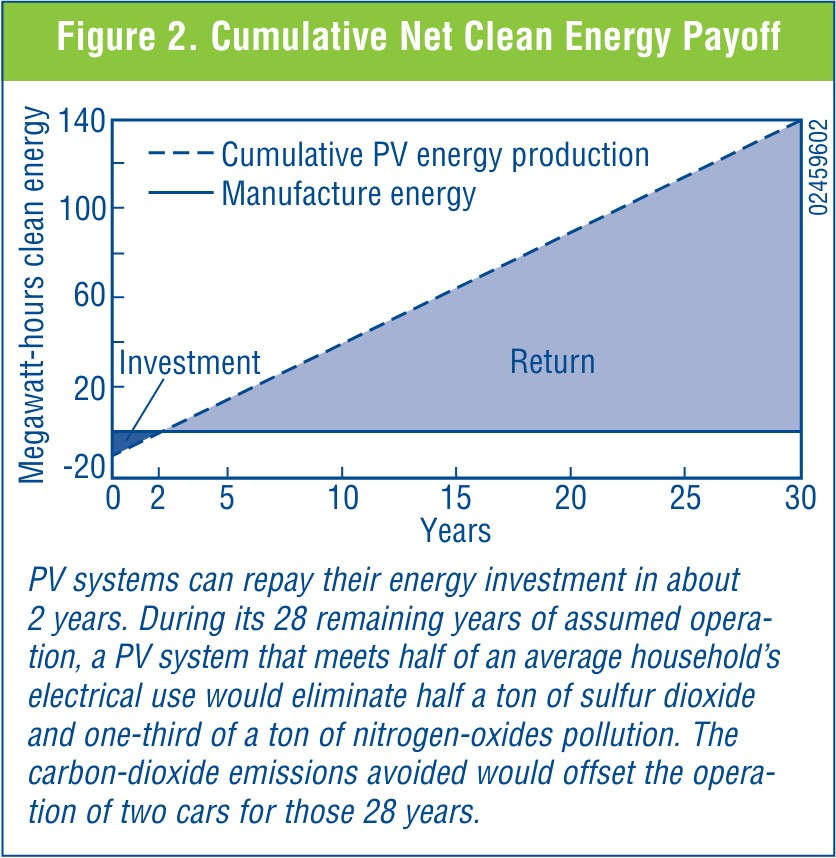
Source: National Renewable Energy Laboratory
Air pollution
There is no question about the negative health consequences of air pollution.
- The World Health Organization (WHO) states that 99% of the global population breathes air exceeding their guideline limits.
- According to a 2023 study, 8.34 million deaths per year are caused directly by air pollution.
- Our World in Data suggests that air pollution contributes to one in ten deaths globally.
But what can we do to reduce it? The positive environmental impact of solar energy is evident in its contribution to reducing air pollution. Solar panels do not emit any small particles or other air pollutants during their operation.
According to a report from the US Department of Energy, air quality can be significantly improved with the usage of solar panels.
"Solar technologies provide energy for heating, cooling, and lighting homes and heating water without any direct emissions; as a result, these technologies can help reduce air emissions and improve air quality."
Water footprint
The global water shortage is not often discussed in the media, but it remains a concerning environmental and social issue. According to the World Wide Fund for Nature (WWF), 1.1 billion people worldwide lack access to water, and almost 3 million people lack periodic water access.
Similarly, the environmental impact of solar energy on reducing water usage is seldom highlighted. According to research from Duke University, an average US household can save more than 61,000 liters of water per year by installing solar panels. The research emphasizes that in some states, water reduction can reach up to 60% of total consumption.
Land usage
When discussing the environmental impact of solar energy, concerns about land usage are sometimes raised. Critics of solar energy express concerns about the construction of solar power plants, fearing potential threats to agricultural land. As depicted in the graph below, currently, 45% of all habitable land is used for agriculture.
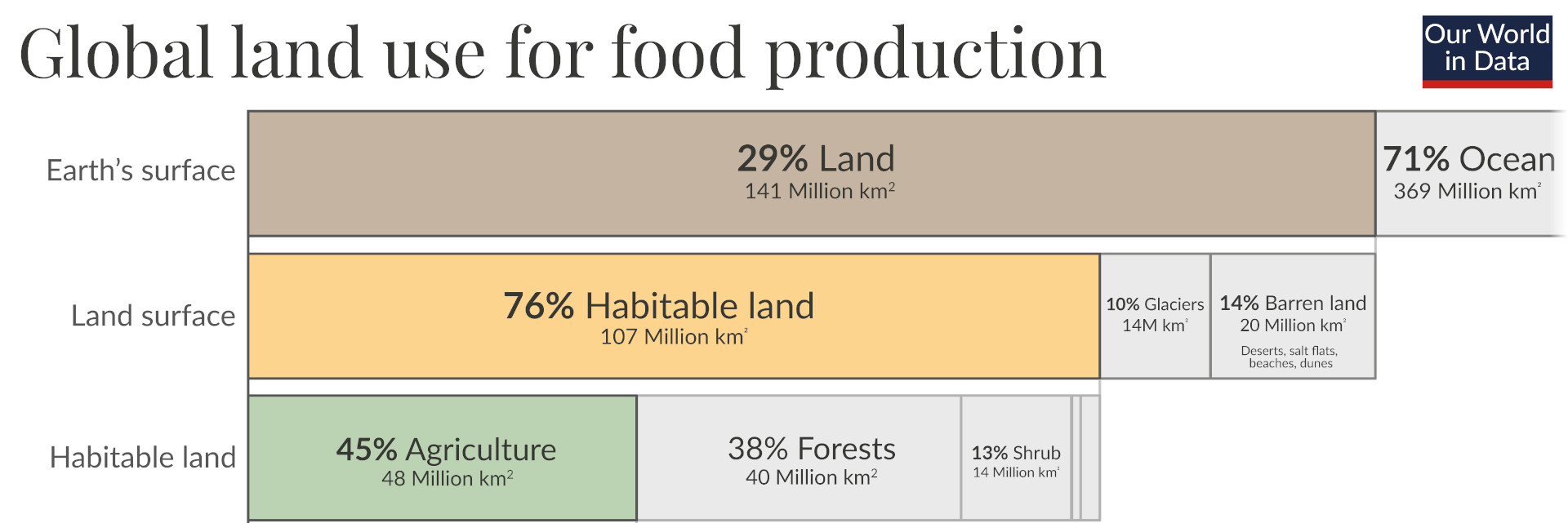
Source: ourworldindata.org
While solar power plants indeed require space, it takes approximately 4 hectares to produce 1 megawatt (MW) of solar electricity. As stated by the Great Plains Institute, a non-profit organization:
"Solar development is a minimal risk to the economic base of agricultural communities, as measured by land conversion."
Conclusion: why are solar panels good for the environment?
Still wondering why solar panels are good for the environment? Summarize the key benefits:
- The price of solar panels has dropped by more than 80% since 2010, making it an easily adoptable technology for businesses and households.
- They can reduce greenhouse gas emissions.
- They can decrease air pollution.
- They can lower water usage.
- The land use of solar energy is moderate, posing no danger to agriculture or other sectors.
